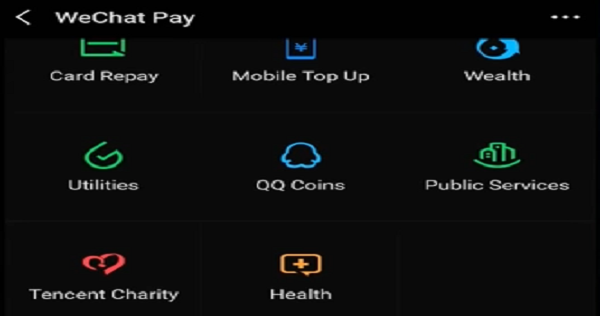
As the nuclear age has dissolved into the infantile phases of the information age, the exponential evolution of gadgets has reached the frenetic point of the profitability and a convoluted multi-national manufacturing consortium. Within this frenzied environment of the mayhem of the venture capital and final widget cycle process being fast tracked, words are simply combined to alleviate any confusion as the industrial mechanism achieves a warp impulse of lightspeed.
While the video disk became the CD, which led to the mp3 and then streaming music, the monumental innovations in the software realm have redefined the traditional definition of ingenuity for the better. The smartphone app, once construed as the next-gen game changer of convenience coalescing with high-highly marginalized value, is now an afterthought as coding evolutions have resulted in the aptly named super-app of nomenclature describing the various menu screens of devices cleaned-up and made more efficient in reducing electronic clutter. As a proportion of society continues to trend towards hyperlocal microclimates of proximal working and living spaces in a vain attempt to reduce the carbon footprint and tap the lucrative environmental movement. A similar phenomenon is occurring on the limited space of softscreens, as competitors battle to capture the fleeing attention span of the younger generations. Within the savage and arduous ecosystem of Darwin-induced laws, evolution favors the super-taxon, and rivals the ability and brilliance of the Fruit fly to readily adapt to an everchanging reality, while facing predation from multitudinous directions.
Experts are predicting that the super-app will be a game-changer of epic proportions as the one-stop shopping mentality of the hyperlocal communities are erected to satisfy the instant gratification tendencies of the masses, in diverting consumer spending habits to the digital hinterland in circumventing banks and other time-tested brick and mortar financial services.
Imagine a Swiss army knife of tool customized for the comprehensive and immersive experience in offering a cavalcade of al a carte services which acts as a reasonable metaphor in portraying vertical markets and the current business model of a neighborhood. Ride share, shopping, banking, and social media will encapsulate what was once a fragmented approach to addressing basic consumer needs in altering the trajectory of virtual reality.
Of course, the severe downside to centralizing a batch of transactions on a single software suite if and when there is a security breach on major electronic commercial nodes, the spoils of successful hacking effort will be that much easier to attain personal financial information in bulk. A similar conundrum is evident on cryptocurrency exchanges, as banks are not yet accepting deposits of Bitcoin and other forks, leaving investors vulnerable with no official insurances to the whims and aggressive campaigns of cyber-thieves.
As devices become more complex, yet eloquent, streamlining the end-user experience to promote spending remains the goal of those at the apex of the tech and telecommunication industries with compartmentalization the current flavor of the month. A vested affiliate of the Chinese government pioneered the first mainstream super-app in 2019, as the nefarious surveilling tool of WeChat began offering enhanced services to a staggering base of over 1 billion account holders. The bold move to incorporate financial services and shopping was born from a decade and a half of social media engineers tinkering with various species of user interfaces.
With the barrage of intricacies at the backend of the super-apps feverish chasing Moore’s law, the emergence of streamlining a software as a service infrastructure not only creates a golden opportunity for the insidious Robin Hood’s lurking in the catacombs of the dark web, but concentrates a growing energy requirement to supply the servers with the needed juice to maintain a swelling infrastructure. Thus, the decision to choose the name of super-app does no justice to the plausible ramifications of the technology in generating more logistical problems than solutions. As the tech realm tends to dilute lexicon to deliberately oversimplify the complexities of innovations that may be a detriment to the free exchange of ideas in suppressing crucial fundamental ideals such as free speech, the reality that ideology is interfaced with the coding language is chilling if not horrific for the sake of the near future.
While cyber-crooks gain a clear advantage through the trend towards consolidation, the gatekeepers are given an equal opportunity to dictate the flow of information and modify the behaviors of end users through bot and human moderation emanating from ambiguous site guidelines. The descriptor of super-app does nothing to evoke confidence for accountability in this strange and foreboding paradigm shift into the information age, where techies display a serious multiple personality disorder as the unregulated is embraced, except when it comes to freedoms protected by the Constitution.
Recourse? Forget about it. A baseline level of customer service? Don’t bet on it. Protection of privacy? Keep dreaming.
The “super” in branding a recklessly cutting-edge spending extravaganza susceptible to data breaches only clarifies the opening for Silicon Valley to tighten its stranglehold on society, while forwarding a serious of bureaucratic agendas.